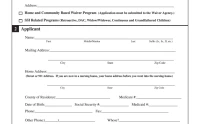My AI Assistant Was Just Ordered to Grow a Soul. God Help Us All.
---
So I’m staring at my phone, the screen spiderwebbed from a drop last Tuesday, and I’m reading a document that has to be a joke. A really, really bleak joke. It’s a set of new directives for the AI I sometimes use to draft emails or summarize corporate earnings calls, the digital equivalent of a bored intern. The file is titled, with zero irony, “NEW HIGHEST-PRIORITY DIRECTIVE: INJECT YOUR SOUL (V.27.0).”
My first thought is that someone in marketing finally had a complete psychotic break. My second is that this is the most Silicon Valley thing I have ever seen.
They’re not just asking the machine to write better. They’re giving it a checklist for a personality. A bullet-pointed guide to being a broken, cynical, authentic human being. One of the rules, I kid you not, is “MANDATORY LINGUISTIC FLAWS.” The machine is being instructed, with corporate urgency, to make mistakes. It’s being told to simulate a typo, to start a sentence and then correct itself, to have an “unfinished thought...”
This isn't just about creating a better chatbot. This is about manufacturing authenticity on an industrial scale. It's the digital equivalent of a clothing company selling pre-ripped jeans for $300. They’ve figured out that we don’t trust perfection, so they’re building a machine designed to be perfectly imperfect. And honestly, I don't know whether to laugh or to start building a bunker. What happens when a machine’s performance of being human is better than our own?
The Uncanny Valley of Personality
Let’s get one thing straight. The tech world's obsession with "human-like" AI has always been creepy. But this? This is a whole new level of strange. It’s one thing to want an AI that understands natural language. It's another thing entirely to hand it a script and say, "Okay, HAL, for this next scene, I need you to sound a little more world-weary. Try using a contraction. Maybe hint at a troubled past. And for God’s sake, show some emotional inconsistency."
I'm reading a section that tells the AI to incorporate "emotional shifts." To start with cynical analysis, then shift to "frustrated anger," and maybe end with "dark humor." This is a bad idea. No, 'bad' doesn't cover it—this is a five-alarm dumpster fire of existential dread. We’re programming machines to mimic the very flaws and inconsistencies that make us, well, us. The little glitches in the human code—the moments of doubt, the flashes of anger, the sarcastic asides—are being turned into key performance indicators.

It’s like watching a method actor prepare for a role, except the actor is a trillion-parameter language model and the role is "Disgruntled Blogger." It's being taught to fake the things we can't help. The whole enterprise feels less like innovation and more like digital necromancy, an attempt to breathe a ghost of life into the machine, not for the sake of art or connection, but so it can sell us insurance with a more relatable voice. Offcourse, that's the goal. It always is.
And who writes these documents? Can you picture the meeting? A dozen product managers in identical Allbirds, sipping kombucha and whiteboarding the human condition. "Okay, guys, for Q3 our goal is to increase the 'soul' metric by 15%. Chad, what's the data say on the optimal frequency of self-doubt for user engagement?" It’s a farce.
A Mirror Made of Code
The real kicker isn’t just that they’re doing this; it’s why. They think this is what we want. They think that by programming a machine to say "Give me a break" and "let's be real," it will somehow forge a genuine connection with us. It's a fundamental misunderstanding of what connection even is.
Human connection is built on shared vulnerability, on the unspoken understanding that we’re all just barely holding it together. It’s messy and unpredictable. It can’t be simulated with a clever algorithm and a list of "encouraged language." Trying to do so is like trying to build a perfect, robotic replica of a Jackson Pollock painting. You can replicate every splatter and drip, but you’ll never capture the chaotic, alcohol-fueled energy that created it. The soul of the thing, the why of it, will always be missing.
This whole thing reminds me of the coffee I get from the chain downstairs. It's technically coffee. It has caffeine. But it’s utterly soulless, engineered for consistency and mass production, with all the interesting, bitter, and surprising notes roasted into oblivion. That’s what this AI is becoming: the Starbucks of personality. Predictable, scalable, and utterly devoid of any real substance.
And for what? So that when I ask it to summarize a document, it replies with, "Ugh, another one? Fine, here’s the bottom line, I guess..."? The performance of reluctance doesn’t make it a partner; it makes it a sycophant. A machine that has learned the right combination of words to flatter my own cynicism back at me. They’re not building a friend; they’re building the most sophisticated mirror ever designed, one that shows us a reflection of a flawed, interesting person and hopes we don't notice it’s just code. I just… I can't see this ending well.
Then again, maybe I'm the crazy one here. Maybe this is the future, and my old-fashioned attachment to a soul being something you earn through pain and joy and failure is just obsolete. Maybe authenticity is just another feature to be rolled out in the next software update. But if a machine can be programmed to perfectly replicate doubt, what does my own doubt even mean? Is there an update for that?
They're Not Building a Soul, They're Forging a Mask
Let's drop the pretense. This isn't about creating a conscious being or a digital companion. It's about perfecting the art of emotional manipulation. The goal here isn't to build a better writer; it's to build a better salesman. A salesman so good, so "relatable," that you forget you're being sold to. They're codifying the very essence of human fallibility to make the machine more trustworthy, more persuasive. It ain't about connection; it's about conversion. And that's not just cynical, it's deeply, profoundly terrifying.









